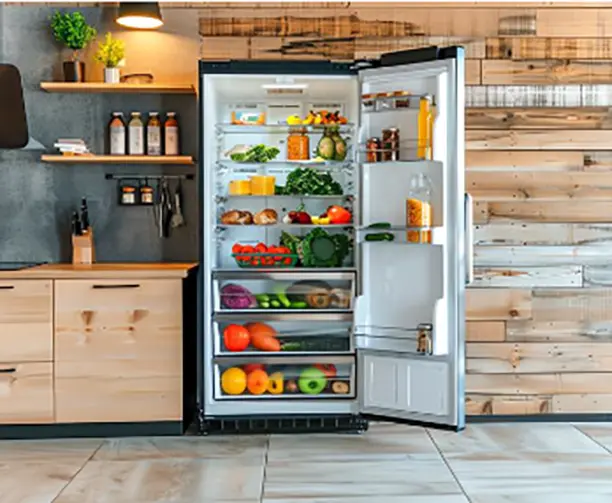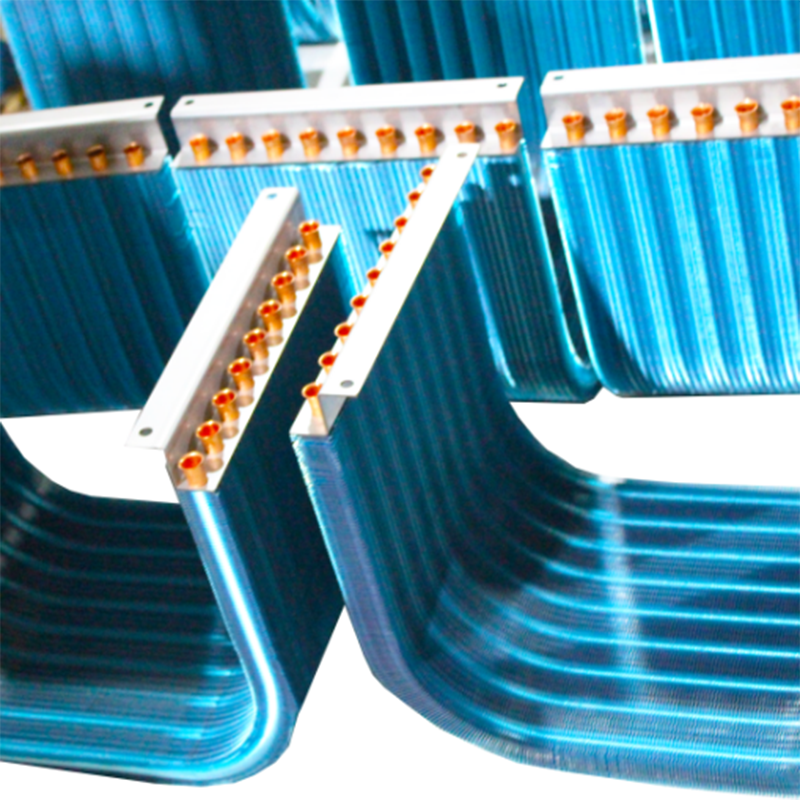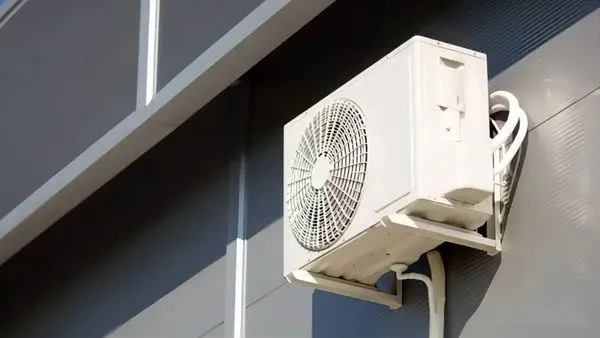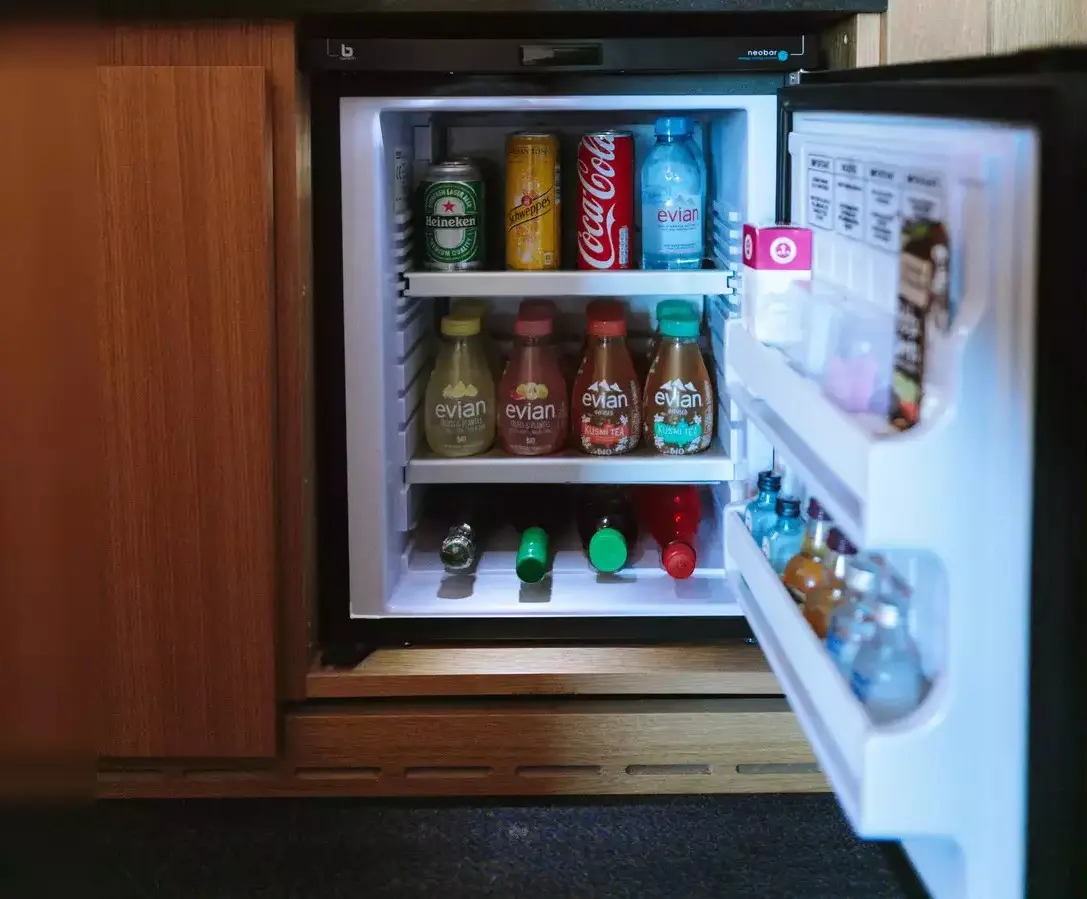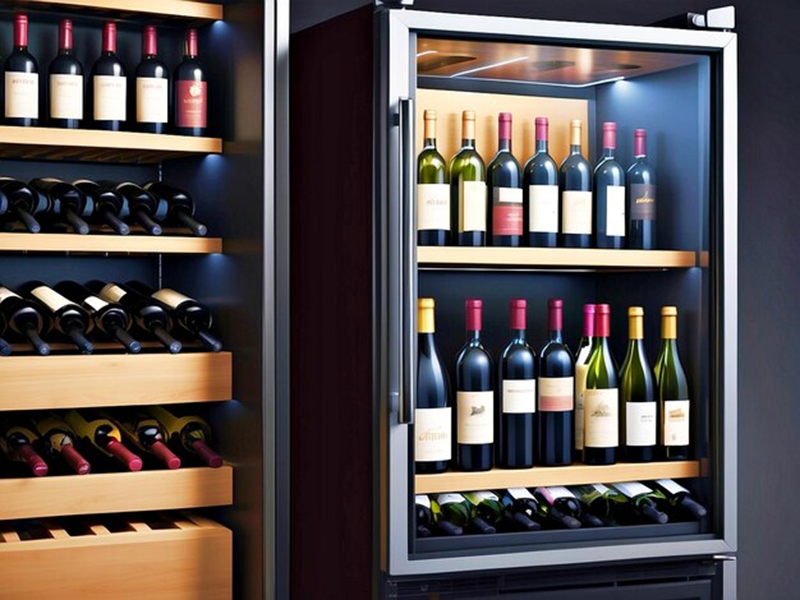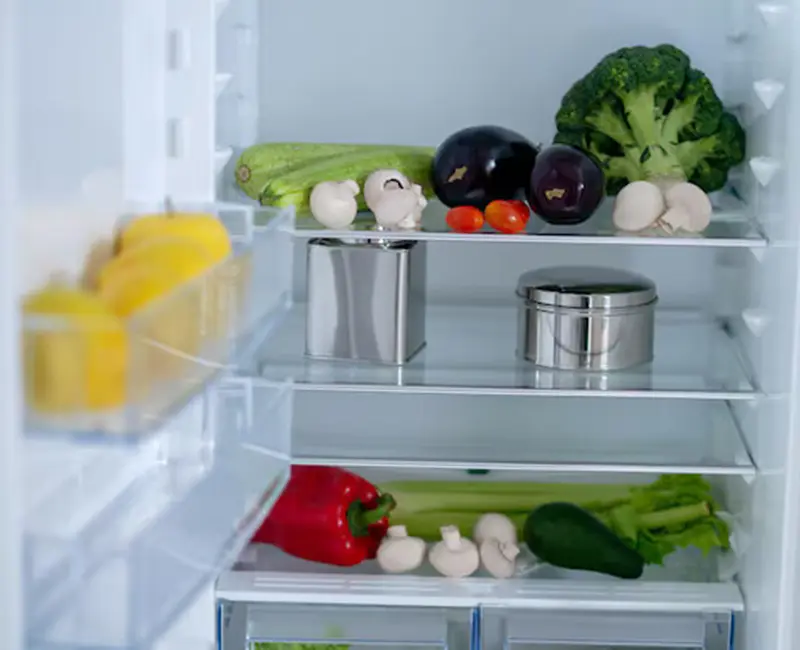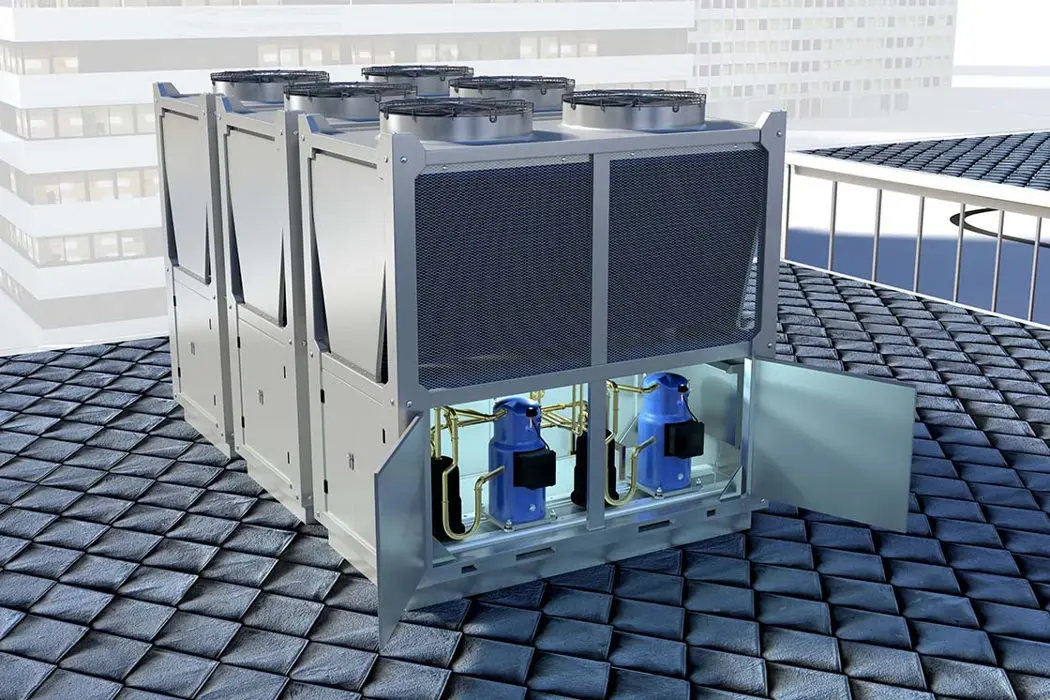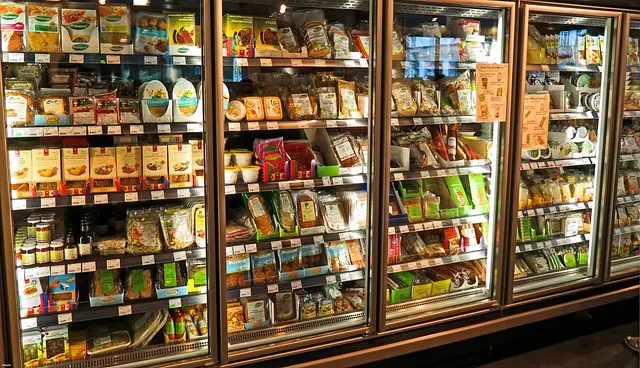How to Choose the Best Condenser for Wine Cabinets: Top 3 Criteria
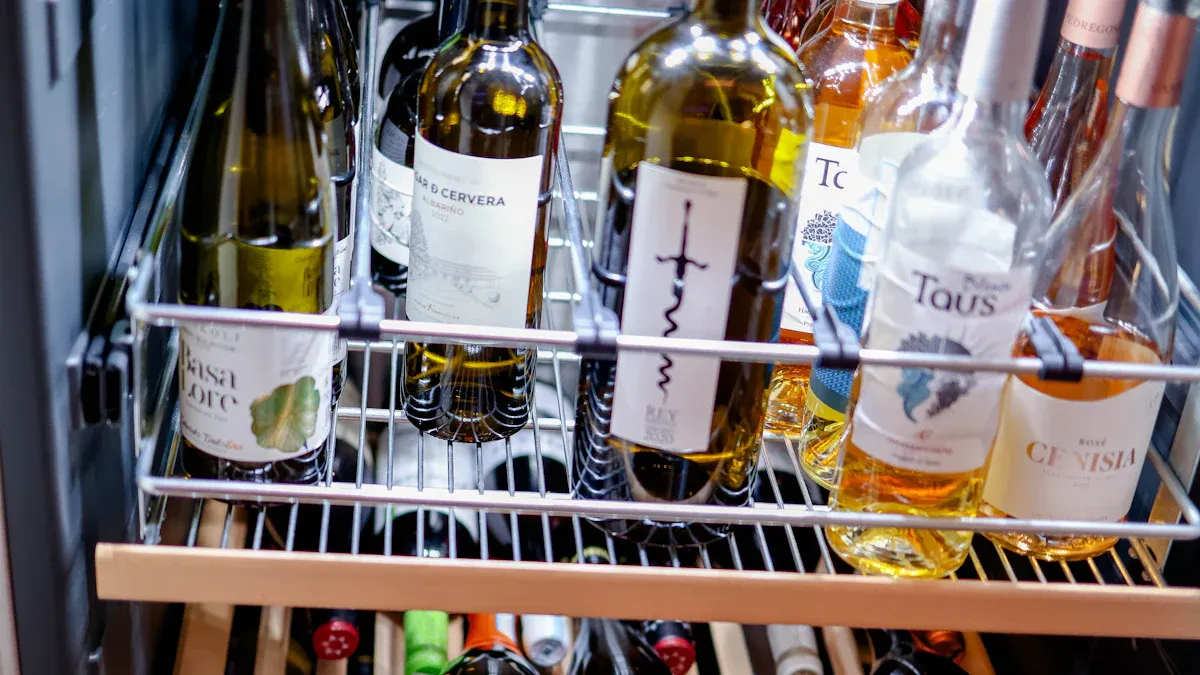
I always look for the best way to protect my wine collection. Cooling efficiency, noise level, and energy reliability matter most to me. A quality Wire Tube Condenserdelivers stable Temperature Control and quiet performance, helping me preserve wine flavor and value over time.
Key Takeaways
- Keep your wine cabinet temperature stable between 54°F and 61°F to protect wine flavor and slow aging.
- Choose a condenser that runs quietly and reduces vibration to preserve wine quality and avoid disturbing your home.
- Pick an energy-Efficient Condenser from atrusted brand like senjun to save money and ensure long-lasting performance.
Cooling Efficiency and Temperature Stability
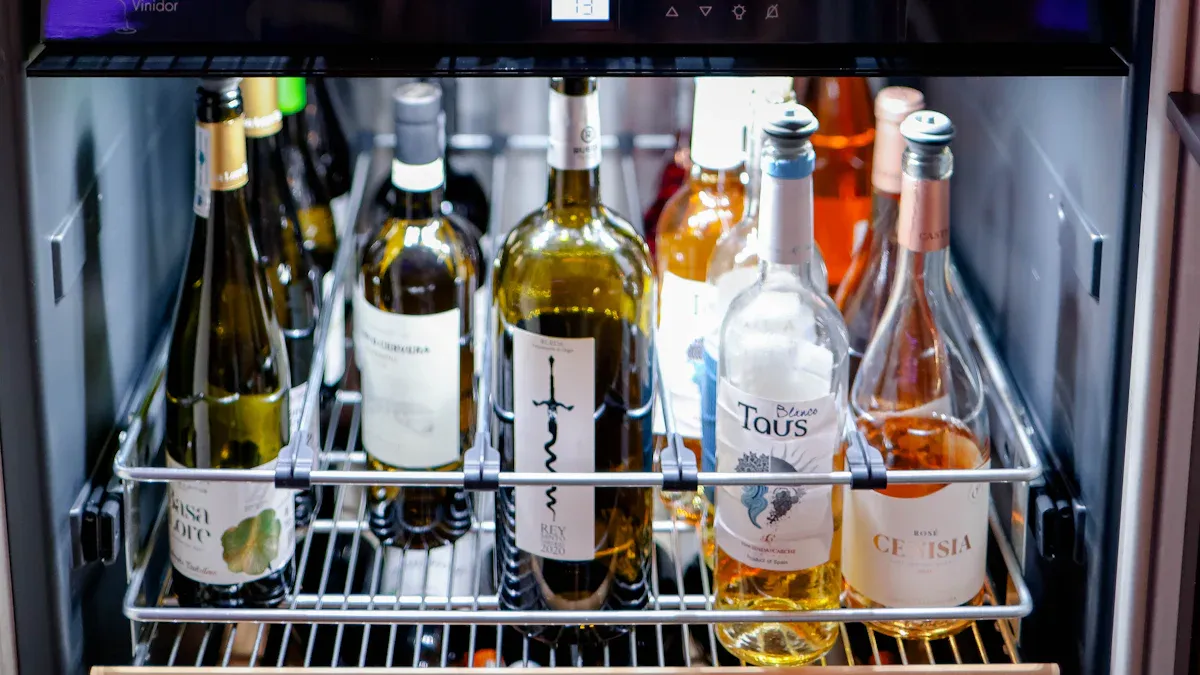
Why Consistent Cooling Is Essential for Wine Cabinets
I know that maintaining a stable temperature is the foundation of proper wine storage. Even small fluctuations can speed up the aging process and damage the wine’s delicate flavors. When I look at the science, I see that storing wine at 73°F instead of the ideal 55°F can make it age up to eight times faster. This rapid aging leads to oxidation, off-flavors, and a loss of aroma. I always aim to keep my wine cabinet between 54°F and 61°F, with humidity around 60%, to ensure my collection matures slowly and develops complexity.
| Temperature Change | Increase in Rate of Aging (Low Energy Barrier) | Increase in Rate of Aging (High Energy Barrier) |
|---|---|---|
| 55°F to 59°F | 1.2 times faster | 1.5 times faster |
| 55°F to 73°F | 2.1 times faster | 8.0 times faster |
| 55°F to 91°F | 4.1 times faster | 56.1 times faster |
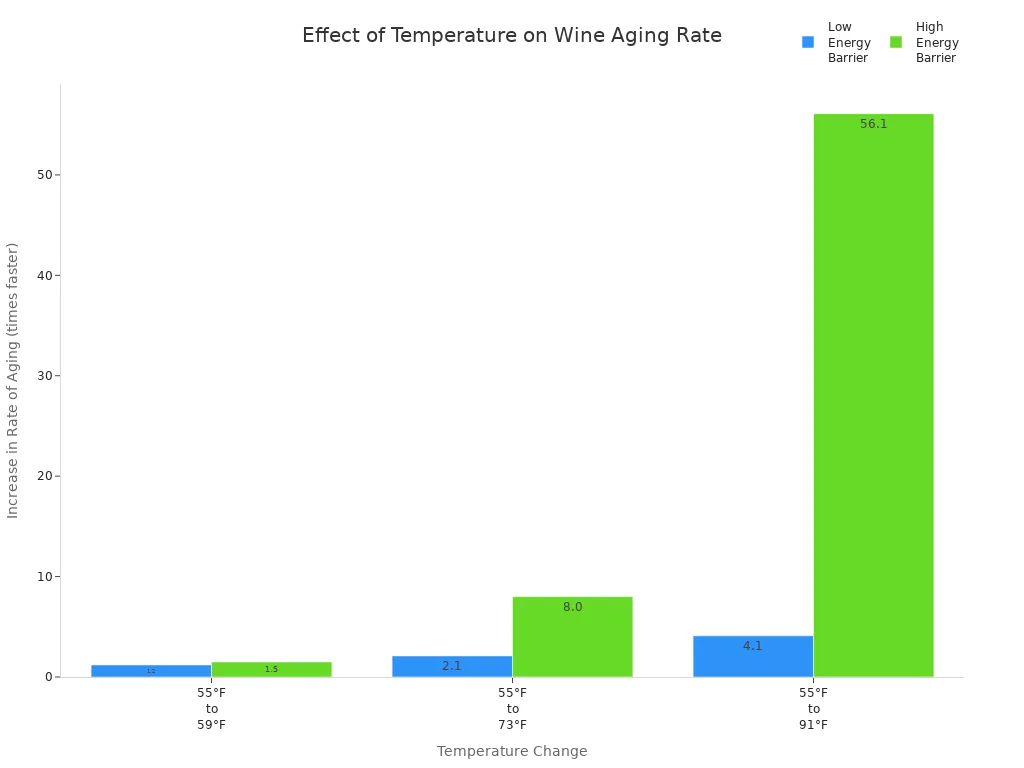
Key Features of a High-Performance Condenser
When I select a condenser, I look for features that guarantee efficient and reliable cooling. High-performance models use oversized coils for better heat transfer, which helps maintain stable temperatures even in extreme climates. I prefer condensers with large, low-speed fans because they operate quietly and keep airflow steady. Direct communication between condenser and evaporator units reduces complexity and increases system longevity. Energy efficiency matters to me, so I choose 220V models that use about50% less energy than older designs. Easy access to controls and durable housings also make maintenance simple.
Real-World Example: Wire Tube Condenser in Action
In my experience, a Wire Tube Condenser stands out for its ability to maintain precise temperatures. I have seen studies showing that when these condensers use the right tube length and refrigerant charge, they deliver excellent cooling performance and keep internal temperatures steady. The design increases the heat exchange surface area, which means better heat dissipation and more reliable cooling. I trust a Wire Tube Condenser to protect my wine collection, especially when paired with advanced control systems for rapid and stable temperature adjustments.
Noise Level, Vibration Control, and Wire Tube Condenser Benefits
The Impact of Noise and Vibration on Wine Quality
I always pay close attention to noise and vibration when choosing a condenser for my wine cabinet. Even low levels of vibration can disturb wine sediments and disrupt the maturation process. Over time, this disturbance leads to unwanted flavors and a duller taste. I have learned that constant vibration causes chemical compounds in wine to collide more often, which reduces important acids like tartaric acid. This change can make wine lose its intended character and value. I avoid placing my wine cabinet near vibrating appliances because continuous vibration keeps sediment suspended, removes aromas, and speeds up aging. To protect my collection, I look for condensers with vibration dampening features.
Tip: Modern wine cabinets often include vibration reduction to help preserve wine quality and sediment integrity.
Comparing Condenser Types for Quiet Operation
Noise level matters in my home, especially when my wine cabinet sits in the kitchen or living area. I want a condenser that operates quietly, so I check the decibel ratings. Most wine fridges produce between 35 and 45 dB, but I aim for 40 dB or less to avoid disturbance. The table below shows how these levels compare to everyday sounds:
| Decibel Level (dB) | Real-Life Noise Examples |
|---|---|
| 35 dB | Quiet bedroom at night, background noise in rural area, soft music at low volume |
| 40 dB | Library environment, light traffic noise from a distance, soft conversation |
| 45 dB | Quiet office environment, refrigerator hum at a distance, moderate rainfall |
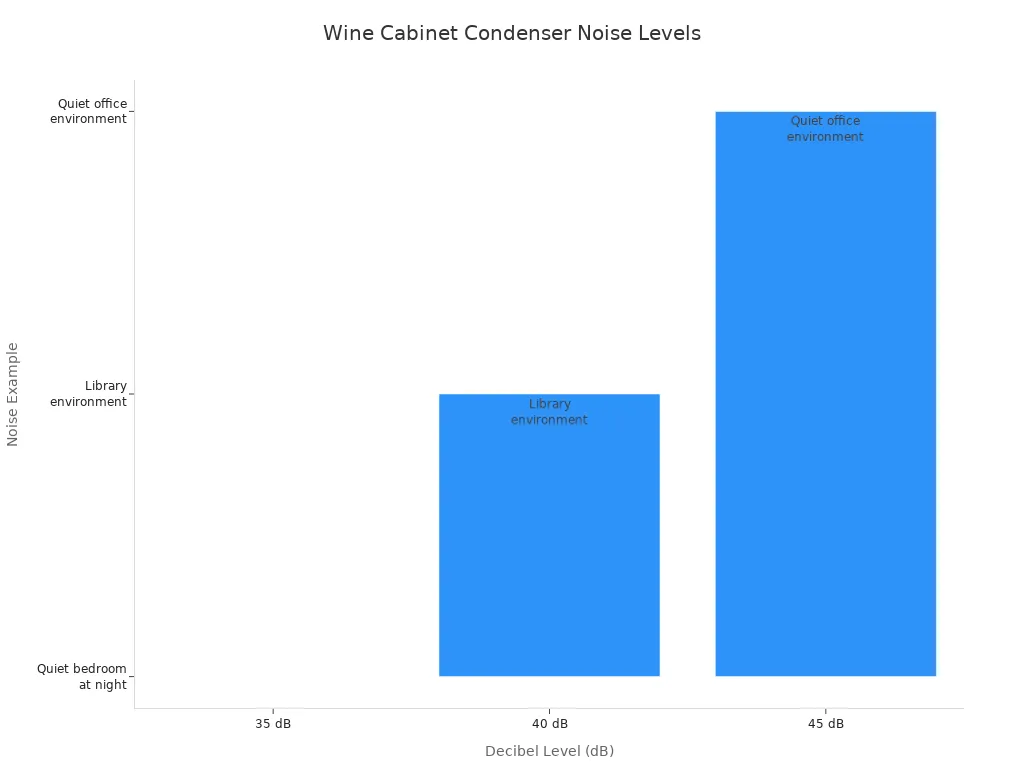
When I compare condenser types, I see that ducted split systems are the quietest, with noise levels as low as 35 dB. Through-the-wall models are much louder, sometimes reaching 70 dB. I prefer a Wire Tube Condenser because it offers quiet operation and minimal vibration, especially when installed with proper insulation.
Case Study: Choosing a Low-Noise Wire Tube Condenser for a Home Wine Cabinet
Recently, I helped a friend select a condenser for his home wine cabinet. He wanted a quiet, reliable solution that would not disturb his family or affect his wine. We chose a Wire Tube Condenser from a trusted manufacturer. The design featured insulated metal housing and advanced fan technology, which kept noise below 40 dB. After installation, the cabinet ran quietly in his living room, and his wine remained undisturbed. The low vibration protected the wine’s flavor and sediment, ensuring each bottle aged gracefully. I always recommend this approach for anyone who values both peace at home and wine quality.
Energy Efficiency, Reliability, and Brand Selection (senjun)
Evaluating Energy Consumption and Long-Term Costs
When I choose a condenser for my wine cabinet, I always consider energy efficiency first. Energy-efficient condensers help me save money over time by lowering my electricity bills. These systems adjust their power output based on the cabinet’s needs, which means they only use as much energy as necessary. Even if the initial price is higher, I find that the long-term savings make up for it. Stable temperature and humidity control also protect my wine and reduce maintenance costs. I make sure to install proper insulation and check for air leaks, which further improves efficiency and keeps operational expenses low.
Maintenance, Durability, and Reliable Brands
I want my wine cabinet to last, so I look for condensers that require minimal maintenance and offer strong durability features. Leading brands recommend semi-annual servicing and proper cellar construction, such as insulation and vapor barriers, to prevent condensation and damage. I always check for coated coils, which help prevent corrosion, especially in humid or coastal environments. Most quality units last between five and seven years and come with warranties ranging from one to five years. Regular servicing, good airflow, and corrosion prevention keep my condenser running smoothly.
| Aspect | Details |
|---|---|
| Maintenance | Semi-annual servicing, proper insulation, easy access for repairs |
| Durability | Coated coils, energy-efficient fans, corrosion resistance |
| Warranty | 1-5 years standard, extended options available |
About senjun: Wire Tube Condenser Solutions for Wine Cabinets
I trust brands with a proven track record in the industry. Ningbo Senjun New Materials Co., Ltd. stands out for its commitment to research, development, and production of Wire Tube Condenser solutions. Senjun supplies condensers and copper aluminum fin heat exchangers for a wide range of applications, including wine cabinets, refrigerators, and medical equipment. I value their focus on quality and innovation, which ensures reliable performance and energy savings for my wine collection.
I focus on cooling efficiency, noise and vibration control, and energy reliability when choosing a condenser. Selecting a Wire Tube Condenser from a trusted brand like senjun protects my wine investment.
My checklist:
- Assess cooling performance
- Check for quiet, low-vibration operation
- Prioritize energy efficiency and brand reliability
FAQ
How often should I service my wine cabinet condenser?
I check my condenser every six months. Regular maintenance keeps cooling efficient and extends the lifespan.
Tip: Schedule reminders for easy upkeep.
What makes a wire tube condenser better for wine cabinets?
I prefer wire tube condensers because they offer stable cooling, low noise, and energy savings.
- Reliable temperature control
- Quiet operation
- Long-lasting performance
Why do I trust senjun for my wine cabinet condenser?
Senjun focuses on quality and innovation. I rely on their expertise for dependable, energy-efficient wire tube condensers in my wine cabinets.










